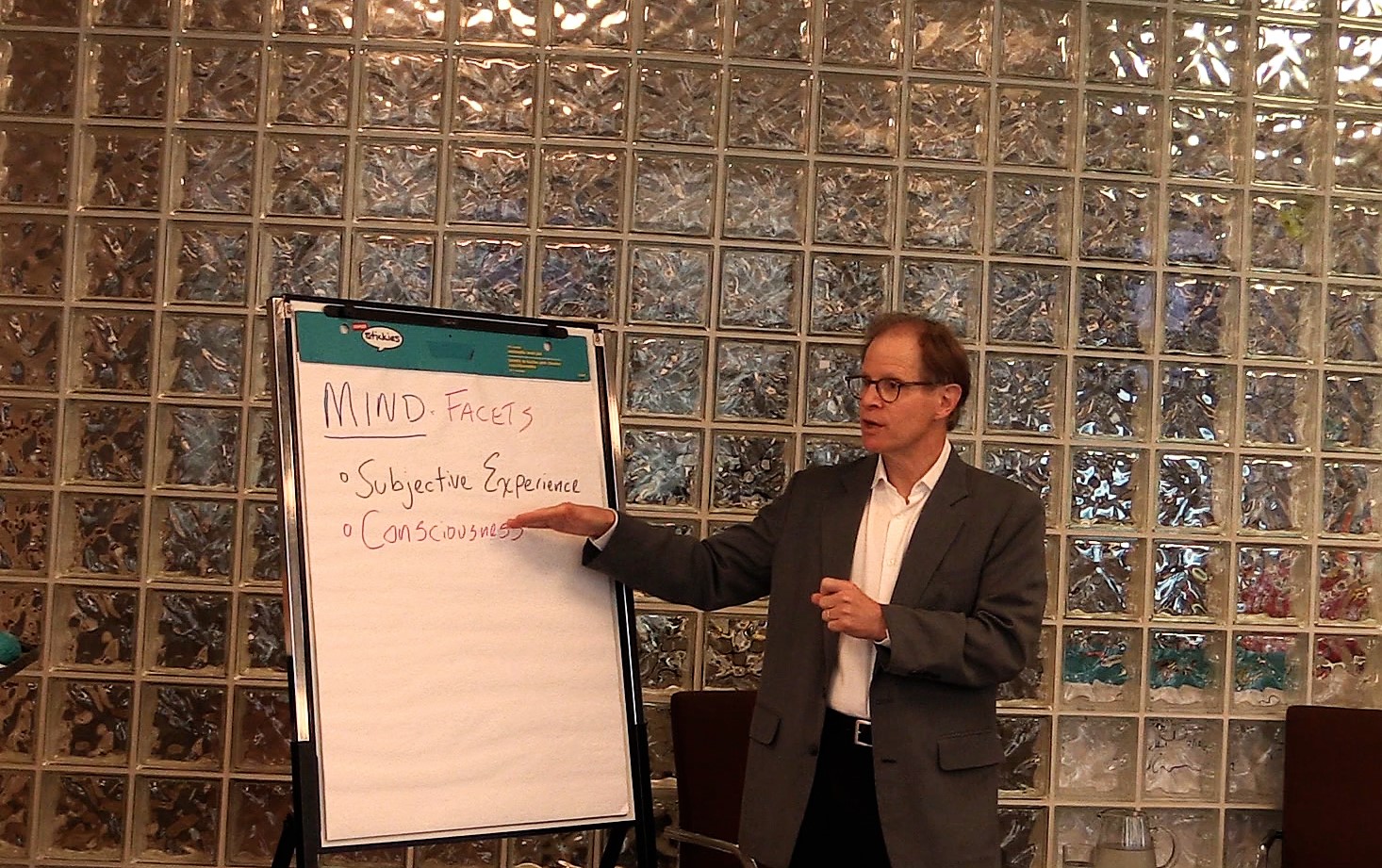The Neuroscience of Relationships

Turnaround for Children welcomed Dr. Dan Siegel, clinical professor of psychiatry at the UCLA School of Medicine and founding co-director of the Mindful Awareness Research Center at UCLA, for a learning session on how relationships shape the developing brain. Drawing on his experience both as a psychiatrist and a researcher in the field of interpersonal neurobiology, Dr. Siegel shared how relationships and the brain interact and inform development.
Turnaround staff – from school-based staff to CEO – were thrilled to build knowledge and engage in dialogue around the importance of strong teacher-student relationships, specifically, the central role relationships play in buffering the effects of trauma and adversity. A conversation with Dr. Siegel allowed staff to dig deeper into the science behind attachment and healthy relationships and understand what we can do to put students on a healthy trajectory of development.
Dr. Siegel unfolded the complex concept of the mind and its impact on the brain, helping Turnaround staff understand, not only its importance, but its plasticity. He emphasized how healthy relationships lead to better “integration,” or stronger connections in the brain. From the earliest stages in life, babies’ brains are building connections through back-and-forth interactions with their caregivers. This process continues throughout development as other adults integral to children’s healthy development, such as educators, continue to engage with and support students. Dr. Siegel explained the importance of strong classroom attachment and the need for children to feel “seen, soothed and safe,” which happens through the context of these supportive relationships. With a greater understanding of the subjective experience of each child comes more opportunity for adults to help students learn to self-regulate and monitor, leading to healthier, more successful lives, both in and out of the classroom.
Since Turnaround’s school-based staff works closely with teachers and administrators to best support students, having the opportunity to learn from a leading researcher in the field of interpersonal neurobiology gave them relevant information to share with eager-to-learn educators. Professional Development Specialist Meredith Houff remarked, “A concept that particularly resonated with me was the idea that the best predictor for well-being was the well-integrated brain, and that mindfulness training supports brain integration. It made me ask myself, how am I supporting my children (students and my actual kids) in cultivating a well-integrated brain?”
This learning session is just one of many ways that Turnaround engages with researchers and educators. In continuing to create these opportunities, we strive to build a bridge between science and practice to ensure the healthy development and success of all children.

Share This Story